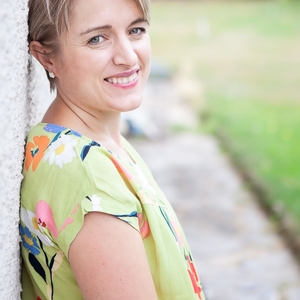You are viewing your 1 free article this month. Login to read more articles.
From clicks to bricks
Two online bookshops have recently gone IRL. Could this be a trend?
Over the past few years, many independent bookshops have begun or revamped their online offering—and with 63% of book purchases taking place online, this clearly makes financial sense.
But what would prompt successful online businesses to move in the opposite direction and take a step on to the high street? Can online sellers really branch out into to bricks-and-mortar—and why would they want to?
Two businesses that have done just that are Bert’s Books in Swindon and Tea Leaves & Reads in Weyhill, both hoping to replicate their online success in new physical premises.
Katy and William Baldwin of Tea Leaves & Reads began their journey into the bookselling world quite by chance. Book-blogger Katy had always enjoyed recommending her favourite reads, but the transition to selling books came only after she and William looked for a way to help others during the Covid lockdown in March 2020.
"Access to books was limited, with bookshops closed and supermarkets not prioritising books," Katy Baldwin explains. "William and I realised that by offering the opportunity to buy featured books on my website, we could recreate the experience of having a book recommended in a bookshop. We began to offer a limited range of books and also created book boxes, where people could purchase a recommended book, together with treats such as teabags and biscuits to enjoy while they read."
The business model proved successful, and the pair began to build a loyal customer base. But what prompted the move into physical retail? "We always hoped to open a physical shop, and knew we wanted a spot at The Fairground, a local site which hosts a collection of indie businesses. We put our name on the waiting list but weren’t sure when there would be an opening. Then in 2024, we got a call."
Since 2020, the Baldwins had gained a good understanding of the realities of bricks-and-mortar in readiness for making the leap. "In the four years since we’d opened, we’d carried out a lot of research into the realities of physical bookselling. We spoke to a lot of booksellers and gained valuable insight. For example, title popularity in the shop is very different from online and we’ve seen that first-hand. Non-fiction generates very little interest on the website, but in store it’s extremely popular."
Despite research, dealing with customers face-to-face has been a learning curve since the business opened its doors on 1st June 2024. "It’s so much easier to research titles for someone if you have an online buffer. In the shop it’s instant, on the spot with no time to reflect."
‘Some of our online customers have become real-life customers too; one drove more than two hours to visit when we first opened’
Bert’s Books also started as a small-scale project, created after founder Alex Call, once head of book marketing for W H Smith, was made redundant. "I set up a website selling a limited number of books in 2019 as a way of staying connected to the industry,’ Call says. But it was lockdown that really led to the small start-up flourishing. "A lot of independent bookshops didn’t have their own websites up and running at first. Our sales more than quadrupled in April 2020."
Many retailers would have stuck to this low-risk, effective online model rather than take the leap into bricks and mortar. But Call had other ideas. "There’s nothing quite like an independent bookshop, and it’s something we lacked in Swindon," he says. "And while I love interacting with people online, there’s nothing better than human interaction in real life."
The decision to make the leap in May 2023 was due to the right premises coming to market. "I didn’t have a fixed plan to open a shop, but I’d viewed a couple of premises. Then our current shop came up for rent. It has huge open windows, a large space perfect for events and a brilliant location on a car park in Swindon’s Old Town. It’s perfect."
By then, Call had the financial breathing space to build the customer base slowly if necessary. "At the time, I was making enough from the online business to cover the rent from the shop. It wasn’t a huge amount, but it made it a relatively safe risk.’’
Despite years of retail experience, he was surprised at some of the start-up costs. "There were loads of smaller expenses I’d never even considered. Like, a bin licence. I had no idea they existed."
Having made the leap, how do the two businesses hope to attract and retain a loyal customer base? "Luckily we had lots of interest from the start," says Call. "And in terms of improving footfall, we’re letting word-of-mouth do the legwork. We’re using Facebook to link to potential customers in the local area and also run a lot of events, so customers are discovering us that way."
"We have a USP due to our location on The Fairground," Katy Baldwin says. "Plus there aren’t any other indie bookshops locally. We’re also hoping to attract more customers through running events and launches, creating a book community and offering additional value with signed editions and bookish gifts. Amazingly, some of our online customers have become real-life customers too; one drove more than two hours to visit when we first opened."
While it’s still early days, starting out online and building connections, experience and confidence seems to have given both businesses a leg-up into IRL bookselling. Only time will tell whether the tide is turning away from Amazon enough for this to become a true trend—but in the wake of a vibrant Independent Bookshop Week, it’s an encouraging sign.

















